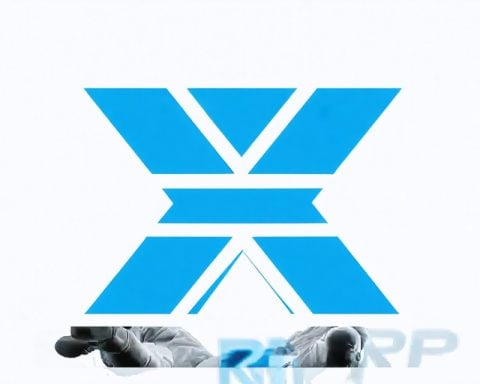Roblox, a unique online platform that blurs traditional boundaries, has captured the attention of millions of users worldwide. Is it a game? A social media platform? A metaverse? These questions arise when attempting to define Roblox, a robust ecosystem where users create and explore immersive experiences crafted by others.
With over 77.7 million daily active users, Roblox has become a thriving hub of activity. Catering not only to children aged nine to 12, but a wide range of demographics, Roblox offers a diverse array of experiences encompassing gaming, shopping, communication, and media consumption.
Unlike traditional media platforms, Roblox relies on its users to create content, fostering a dynamic community that continually builds and shares immersive experiences. The platform’s immense popularity has not gone unnoticed, as it generated a staggering revenue of US$2.7 billion in 2023 and is currently valued at an impressive US$25 to $30 billion.
Roblox goes beyond conventional entertainment platforms by incorporating game engines, blockchain technologies, and token-based economies. In this rapidly evolving digital landscape, users can utilize Robux, the platform’s virtual currency, to enhance their experiences and purchase virtual merchandise. However, it’s crucial to recognize how platforms like Roblox are reshaping the definition of media and the increasing integration of children into the digital commerce realm.
Roblox serves as both a space for play and a canvas for creation. Users can seamlessly navigate through an extensive range of experiences, engaging in games, virtual social interactions, attending virtual concerts, and browsing pop-up shops to acquire virtual products through the exchange of Robux. Additionally, the platform empowers developers to monetize their creations, granting them the opportunity to earn Robux based on user engagement and merchandise sales.
Nevertheless, while developers are enticed by the prospect of earning Robux, the vast majority find it challenging to convert their virtual currency into real-world value. Only a minute fraction of the developer community qualifies to exchange Robux for actual currency. This exclusivity perpetuates Roblox’s closed-off virtual economy, where the platform retains complete control over Robux and restricts any external exchange of avatars, experiences, or the currency itself.
Further blurring the lines between media and commerce, Roblox provides an outlet for branded content. Recognizable brands such as Walmart, IKEA, and Gucci have embraced the platform, creating immersive experiences that intertwine the worlds of marketing, entertainment, and user engagement.
Roblox’s vision extends far beyond its current user base, with aspirations of connecting one billion users daily. The platform exemplifies a new digital frontier, one that encompasses work, entertainment, and services all within a controlled environment. As we delve deeper into this uncharted territory, it becomes crucial to understand the potential economic, social, and political implications these platforms may have on our lives.
Additional facts:
1. Roblox was founded in 2004 by David Baszucki and Erik Cassel.
2. The platform reached its first million users in 2006 and has since experienced exponential growth.
3. Roblox is available on multiple platforms, including Windows, macOS, iOS, Android, Xbox One, and Oculus Rift.
4. The majority of Roblox users are under the age of 18, with many being children and teenagers.
5. In addition to creating their own experiences, users can also join groups, participate in events, and compete in contests within the Roblox community.
6. Roblox has a developer program that allows users to earn money by creating and selling virtual items, clothing, and accessories.
7. The platform has a strong focus on safety, with measures in place to protect users from inappropriate content and personal information exposure.
8. Roblox has its own marketplace where users can buy and sell virtual items, with the company taking a percentage of each transaction.
9. Roblox regularly holds virtual events, concerts, and partnerships with celebrities and brands to engage its user base.
Most important questions and answers:
Q: What is Robux and how does it work?
A: Robux is the virtual currency used on the Roblox platform. Users can purchase Robux with real-world currency or earn them through gameplay and development. Robux can be used to buy virtual items, accessories, and avatar upgrades within Roblox.
Q: How does Roblox ensure the safety of its users, especially children?
A: Roblox has strict moderation and filtering systems in place to prevent inappropriate content from being shared or displayed. It also provides tools for parents to set restrictions and monitor their child’s activities on the platform.
Q: Can users make real money from Roblox?
A: Yes, through the developer program, users have the opportunity to earn real money by creating and selling virtual items or participating in the Roblox affiliate program.
Key challenges or controversies:
1. Safety concerns: Despite efforts to maintain a safe environment, there have been instances of inappropriate content and inappropriate interactions among users on Roblox. The platform continues to improve its safety measures to address these issues.
2. Monitoring user-created content: With millions of users creating content on Roblox, it becomes challenging to monitor and control the quality and appropriateness of all experiences available on the platform.
3. Monetization challenges for developers: While Roblox provides opportunities for developers to earn money, the process of converting virtual currency (Robux) into real-world value can be difficult for many developers. The limited ability to exchange Robux for actual currency has been a point of frustration for some creators.
Advantages:
1. Creativity and community: Roblox provides an outlet for users to express their creativity and interact with a vast community of like-minded individuals.
2. Diverse experiences: The platform offers a wide range of experiences, from gaming to virtual social interactions, concerts, and shopping.
3. Educational opportunities: Roblox can be a platform for learning and skill development, as users can explore coding, game design, and scripting.
Disadvantages:
1. Safety concerns: Inappropriate content and interactions can still occur despite safety measures, posing risks to younger users.
2. Monetization challenges: It can be difficult for many developers to earn a substantial income from their creations due to the limited opportunities to exchange virtual currency for real money.
3. Dependency on a single platform: As Roblox is a closed ecosystem, users are heavily reliant on the platform’s infrastructure, which could present risks if the platform faces significant issues or shuts down.
Related links:
1. Roblox Corporate Website
2. Roblox on Wikipedia

















